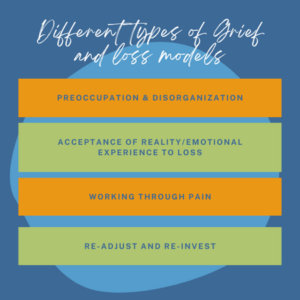 If you’ve been suffering in silence, grieving the loss of things that others may not fully, understand I want you to know that your feelings are valid!
If you’ve been suffering in silence, grieving the loss of things that others may not fully, understand I want you to know that your feelings are valid!
Whatever you are experiencing at this time of seeking-help, your thoughts and feelings are an expression of where you are currently at.
There are many different types-of-grief and loss. Some may have already occurred such as an event that has resulted in the loss of someone or something. Examples include the death of a person or pet and loss of body functions. Some losses are connected to the self, such as loss of identity or mobility. There can be a loss of security due to losing things such as a relationship, housing, or finances. Even events that others may see as exciting and happy such as marriage, career changes, retirement, and moving represent elements of loss.
Some losses may represent what “might have been” and others may be “in process” such as separation or divorce. One area that can be hard to talk about with family and friends is the loss of what might have been. These thoughts can bring up triggering emotions and leave one only feeling more activated when experiences and the emotions attached are not recognized as valid.
Young adults may be grieving the loss of their childhood and the security that it provided. Adulting is not easy, and it can be difficult to accept the reality of what is. Your current situation in life may be far off from the ideal of what was imagined. Perhaps you are single and grieving a relationship. Maybe you are dissatisfied with your job. Oftentimes, young adults that do achieve either their own or others’ expectations for milestones find that they are lacking fulfillment and questioning the next steps in life.
Pulling from various grief and loss models including Bowlby’s-Four-Stages-of-Grief, Kubler-Ross Five-Stages-of-Grief, Worden’s-Four-Tasks-of-Mourning, and Rando’s-Six-processes-of-Mourning, here are some experiences that may resonate with where you are at right now–
Preoccupation & Disorganization:
You may be fixated on the loss, questioning, and seeking answers. You may be feeling as though your thoughts are all jumbled in your brain. You may be starting to gain an awareness of the situation, but likely not at a place to accept or process it, as it may all be too overwhelming.
Acceptance of Reality/ Emotional Experience to Loss:
As you begin to accept the reality of what is, you are also having an emotional response. Initially, it may be denial or anger. Perhaps you are experiencing depression. Maybe you feel numb or as if there are no emotions. Whatever response is coming for you, these are all valid.
Working Through Pain:
Working through pain is painful but the results are worthwhile. Counseling is a great space to help work through the pain as you react to separations and loss or what has occurred, what is anticipated, and what may never be. Working through pain can help prepare one to move through their experience and may have room as they re-adjust and re-invest.
Re-Adjust and Re-Invest:
When there is loss, there is a readjustment to a new environment such as a new lifestyle, or adjustment to the absence of a person or possession. It is important to re-invest by connecting with others and being able to celebrate what is meaningful.
While change and loss are not easy, they are experiences that are woven into our experiences as a human. Being able to recognize the losses of others and come alongside those who are grieving can help facilitate healing.
Written By: Charlotte Johnson, MA, LPCC
We’re Here to help
Our wellness experts will be happy to take care of you. You can CLICK HERE to schedule an appointment now or call (612)223-8898.
Meet Clinicians
We’re united by our commitment to providing effective, relevant, and innovative mental health support at all stages of your journey. Click Here to find a therapist or find out more about who we are, where we come from, and how we live out CARE’s mission every day.
The professionals at CARE are actively collecting and creating resources to help with what you need and address frequently asked questions. We’re Here for You.



